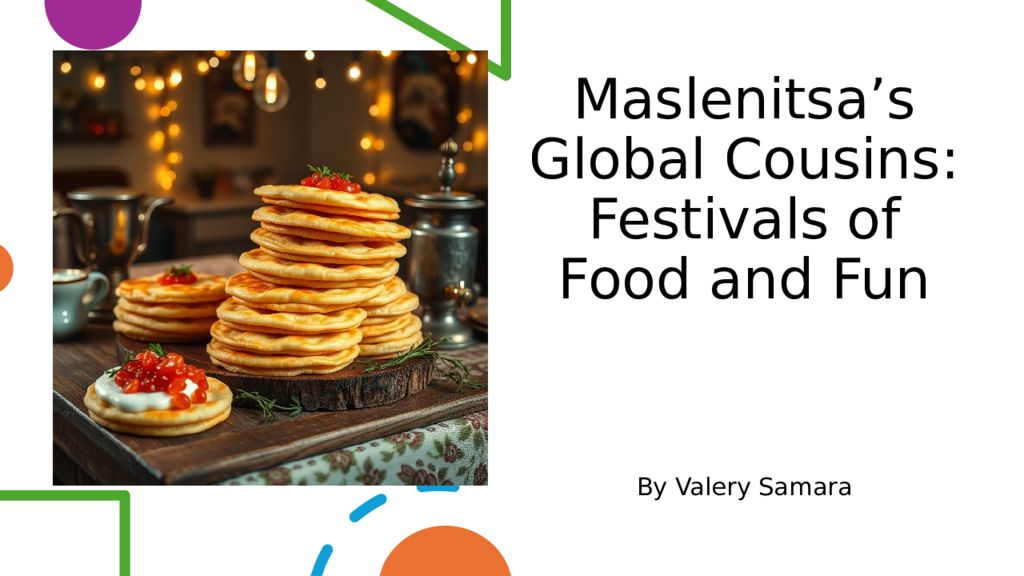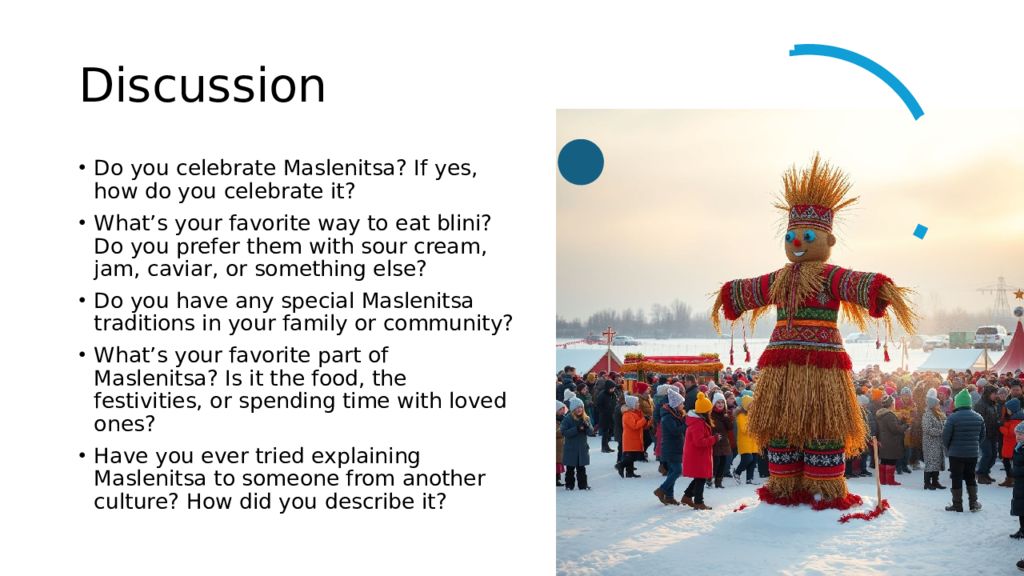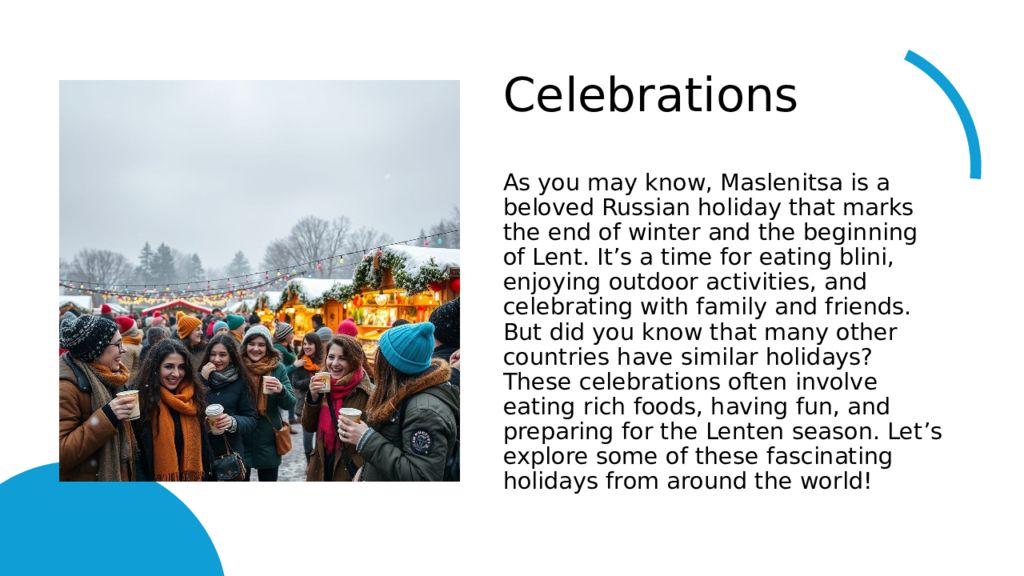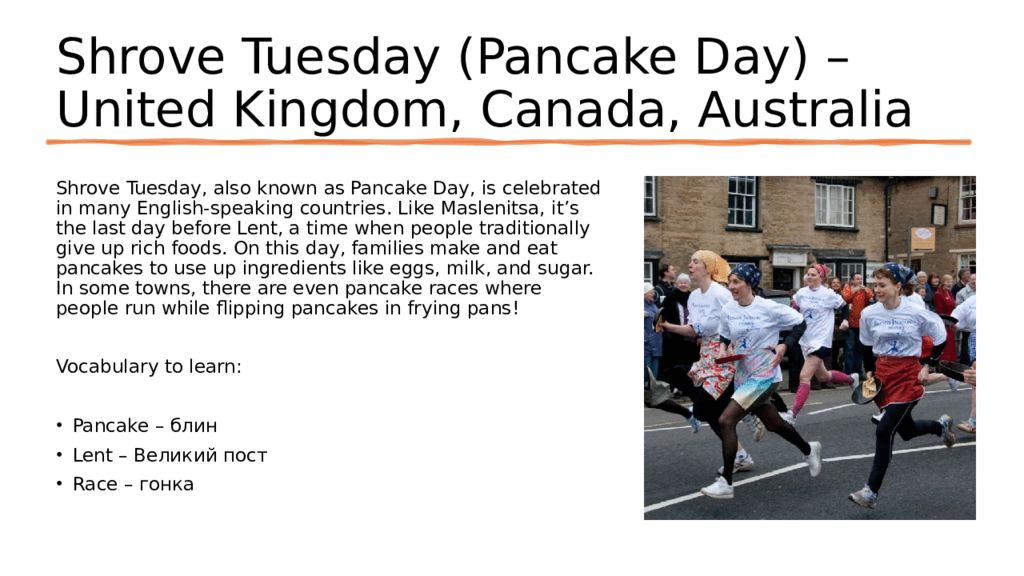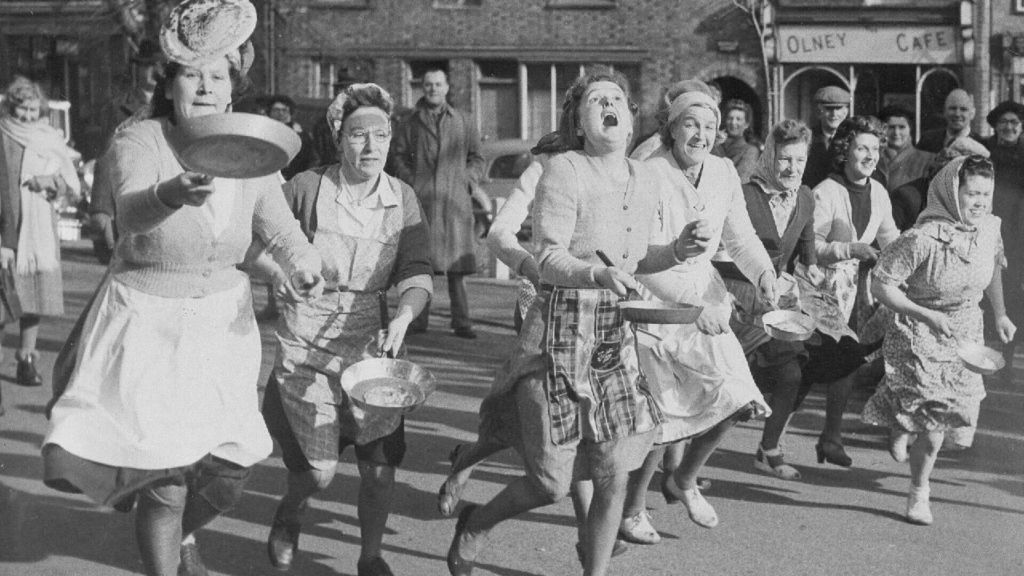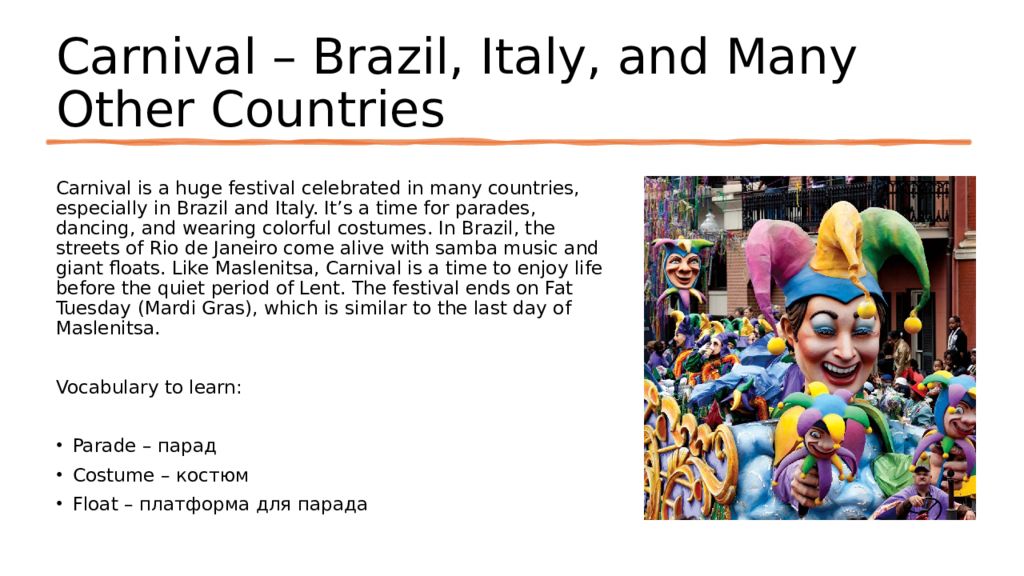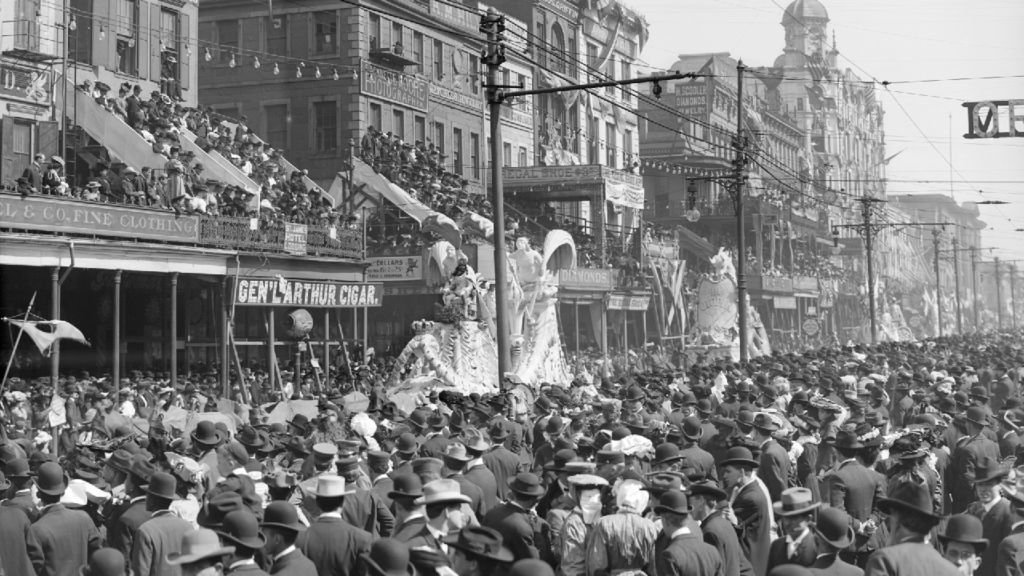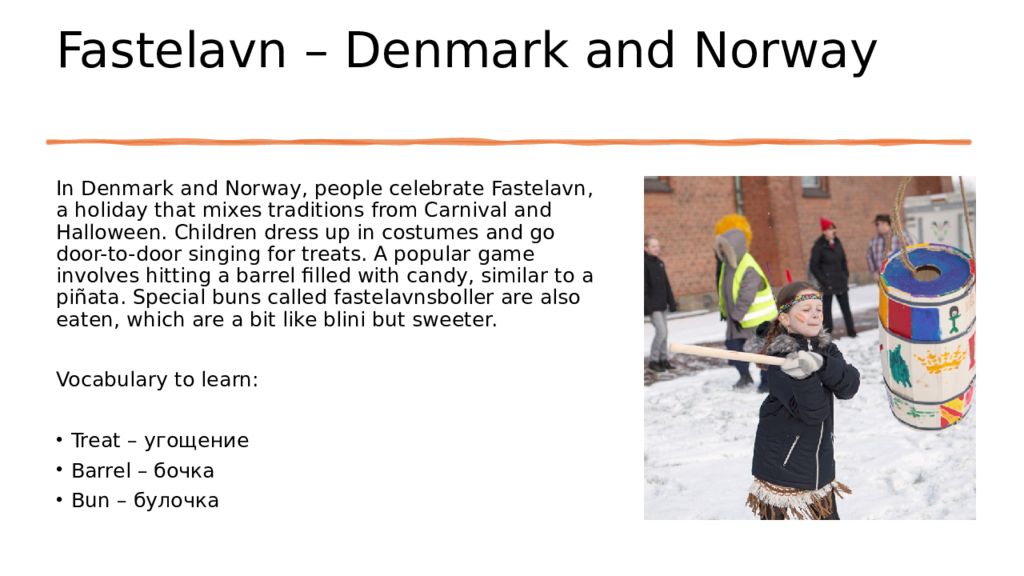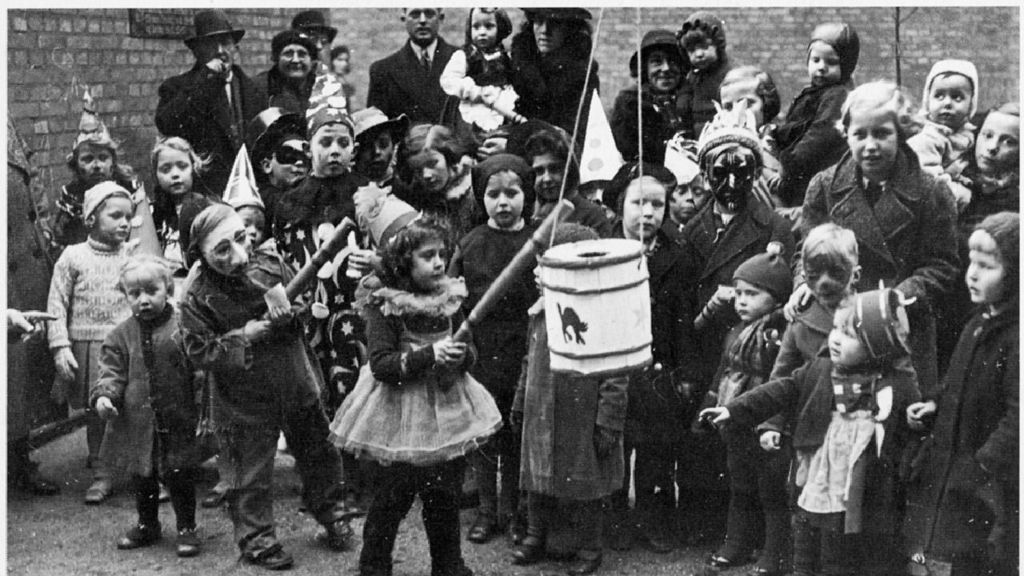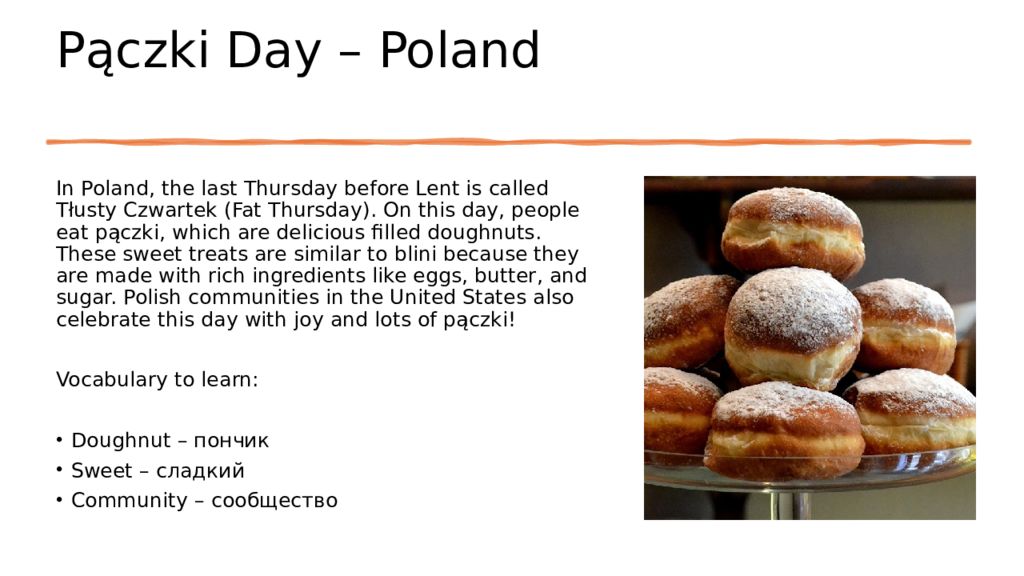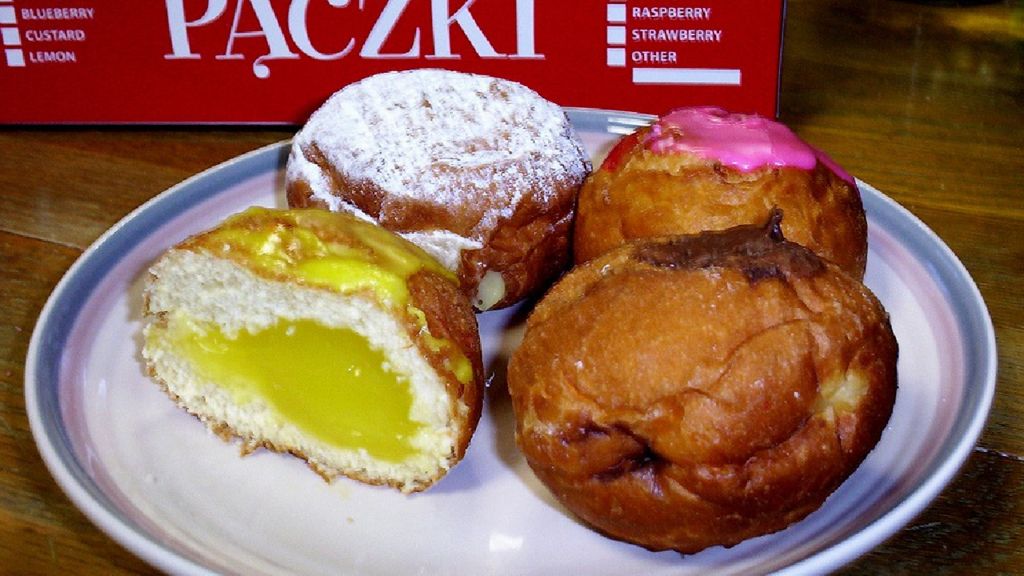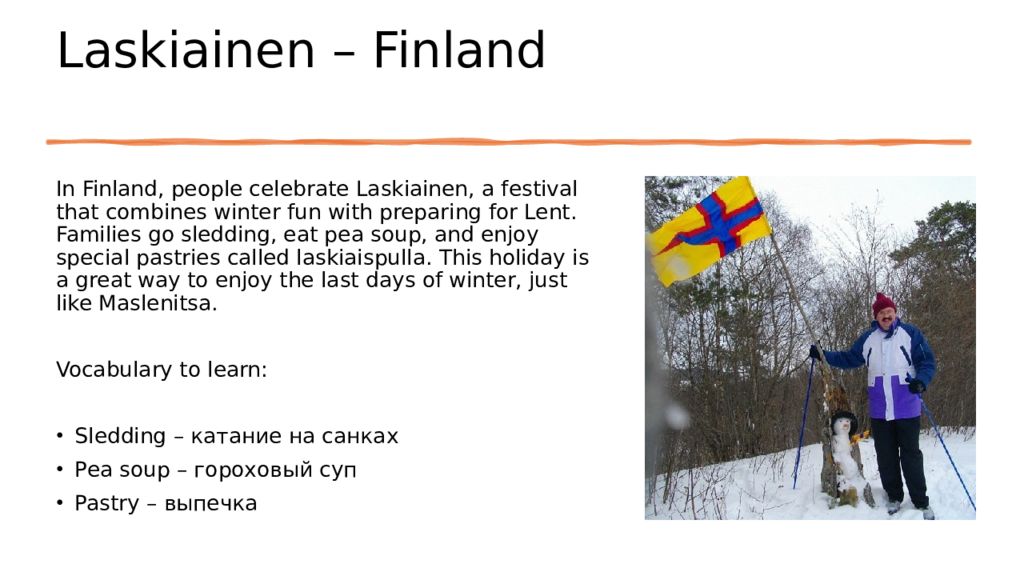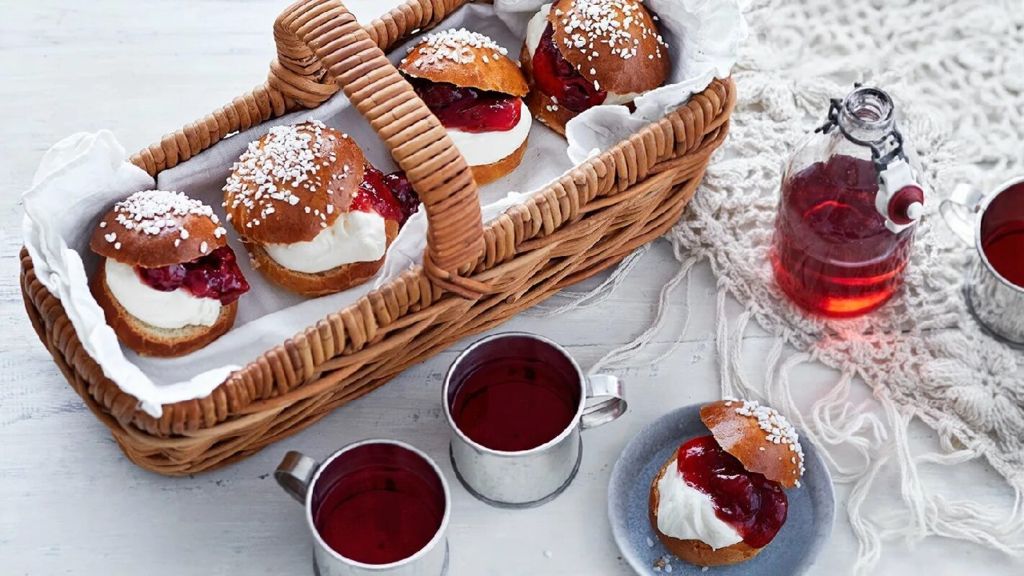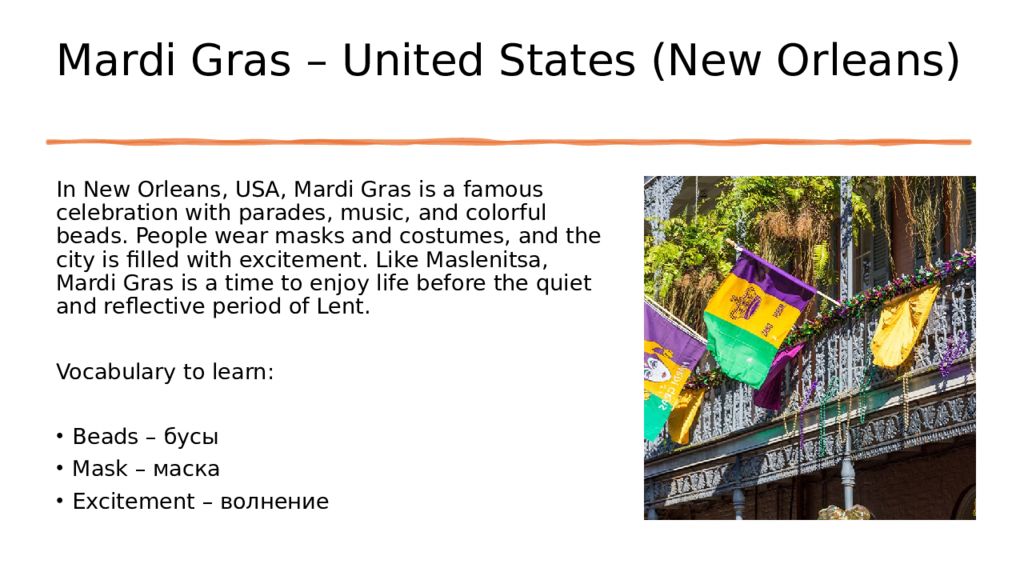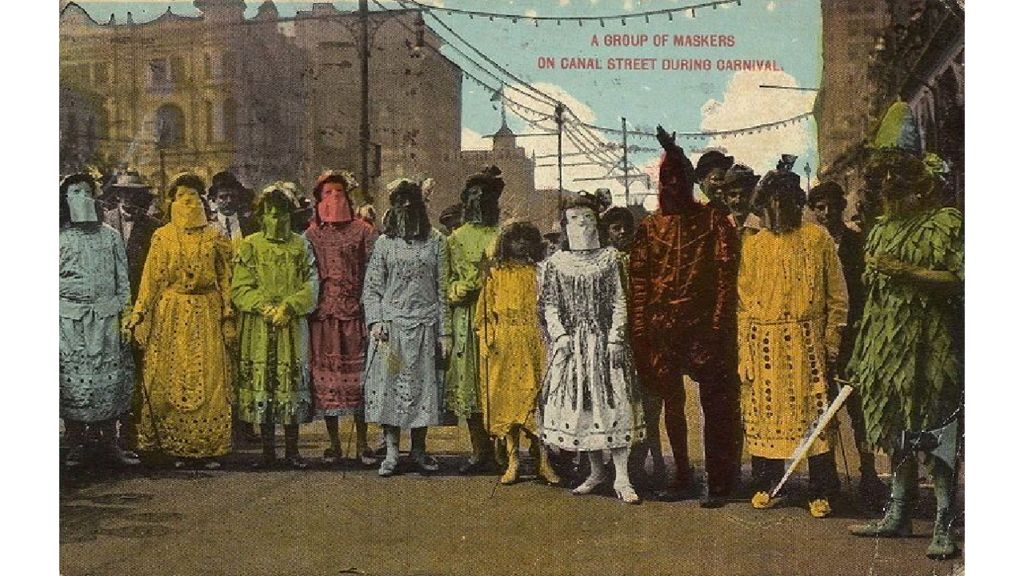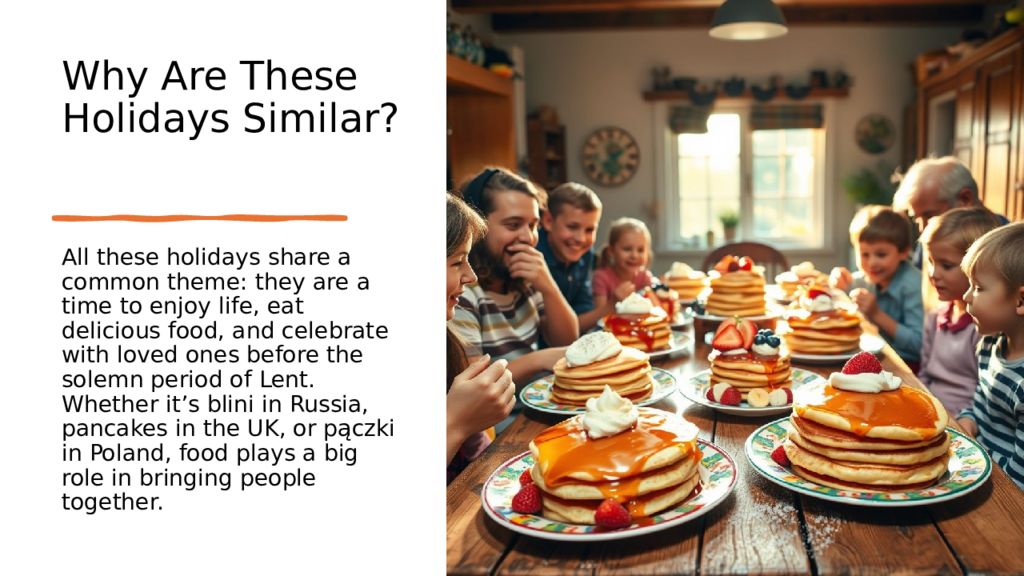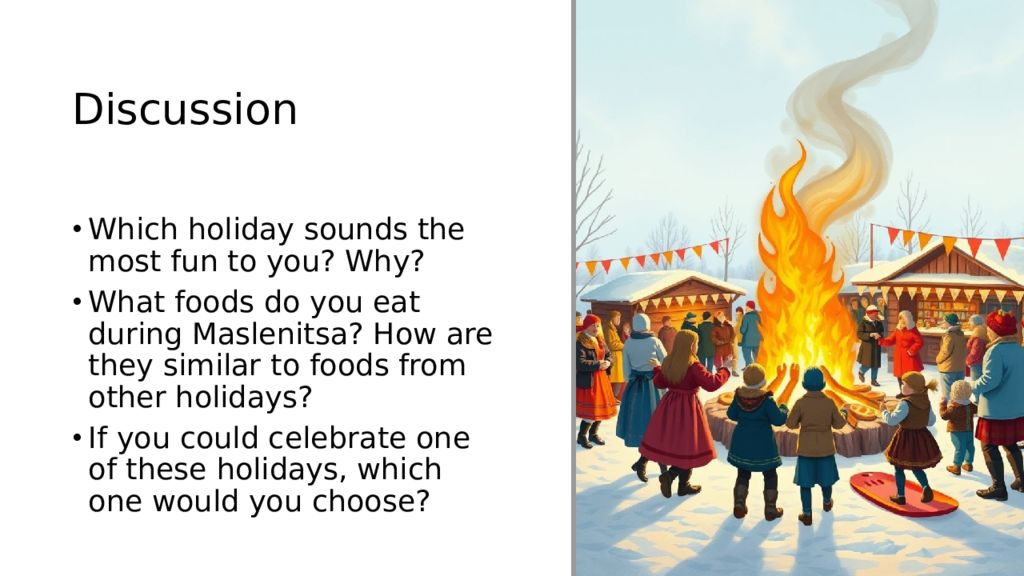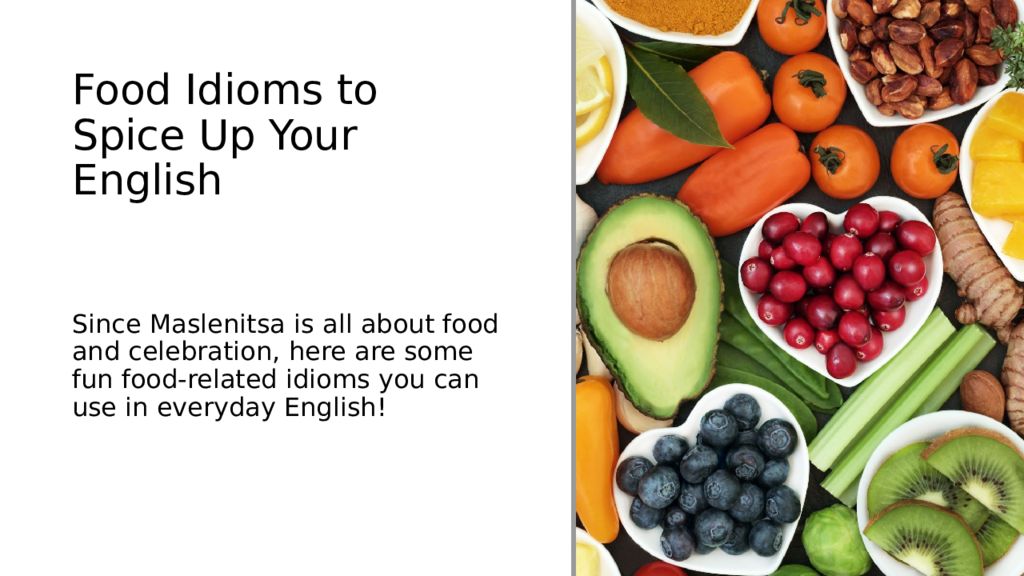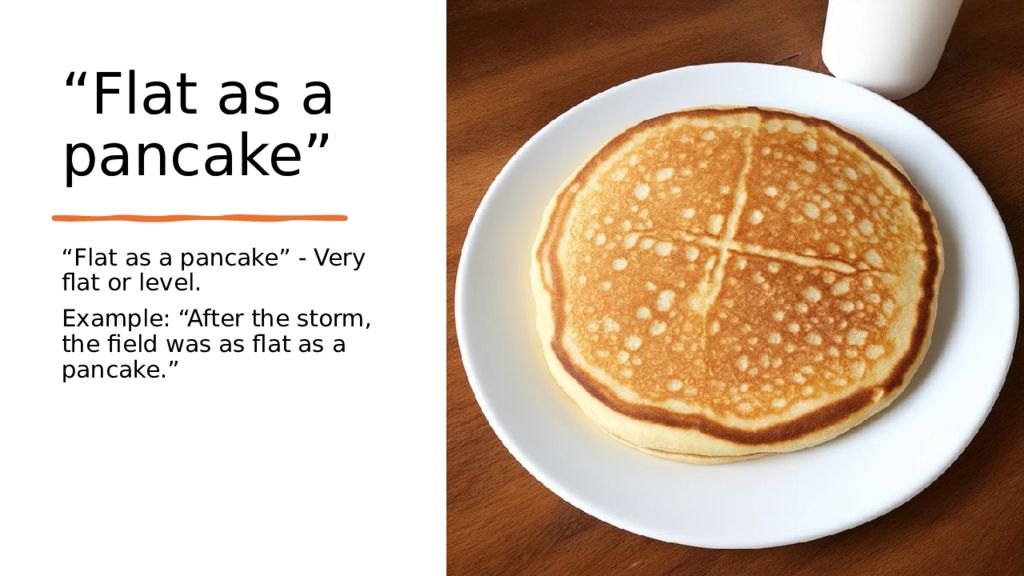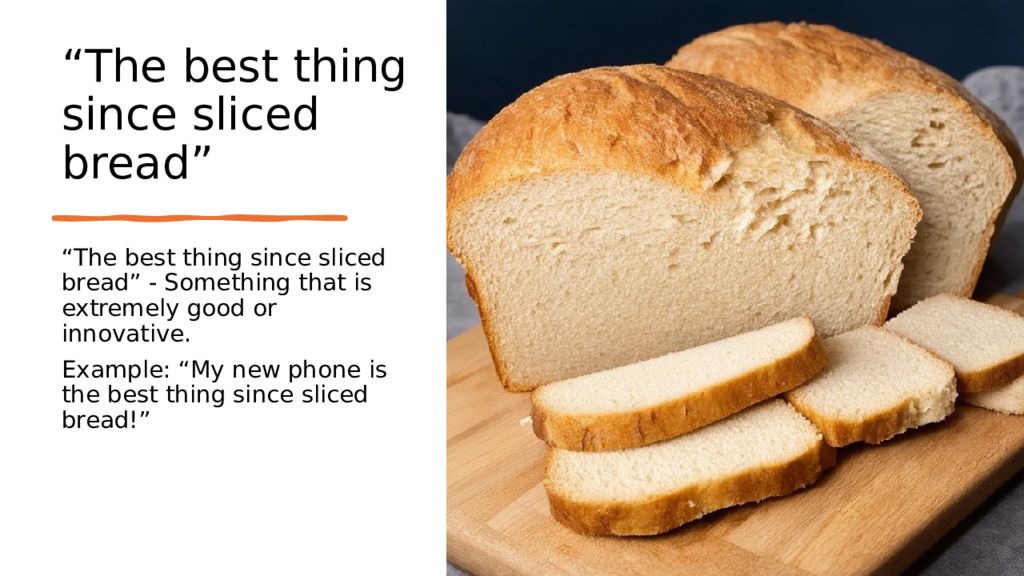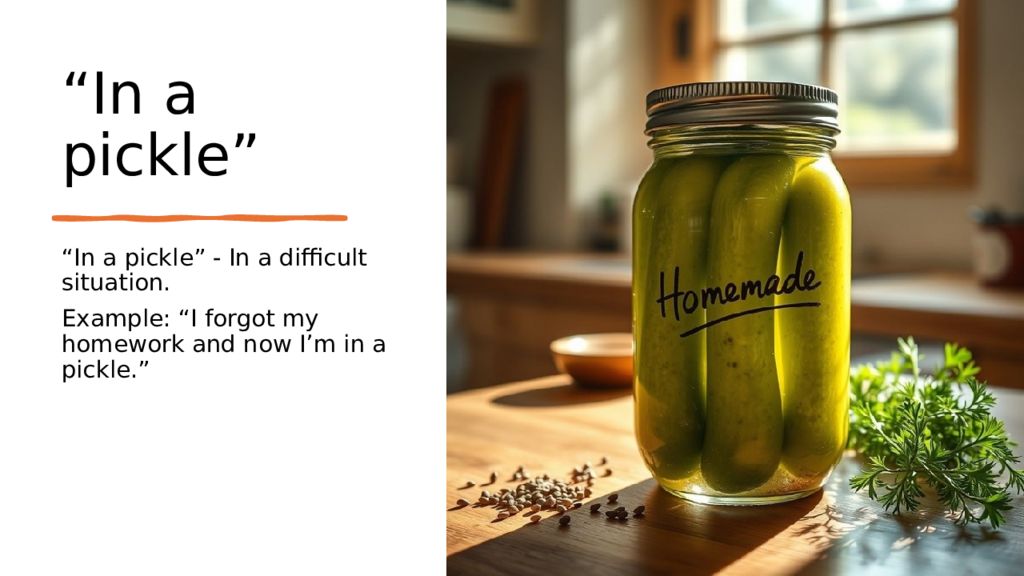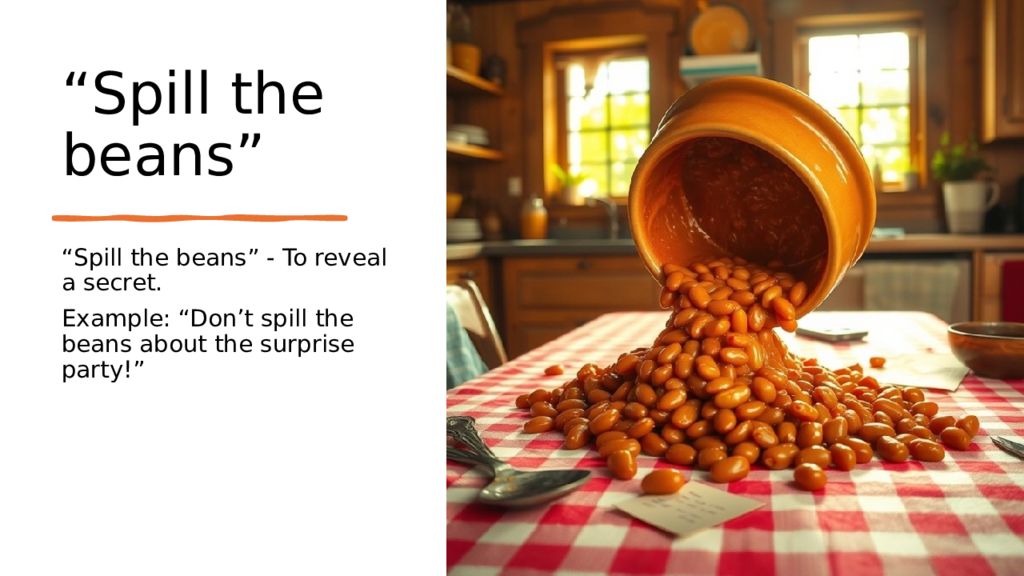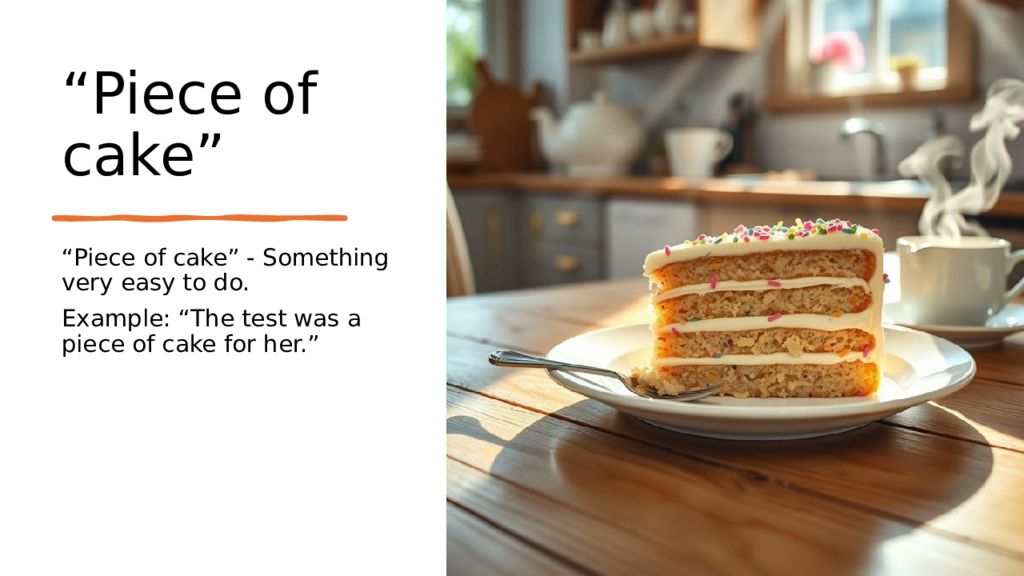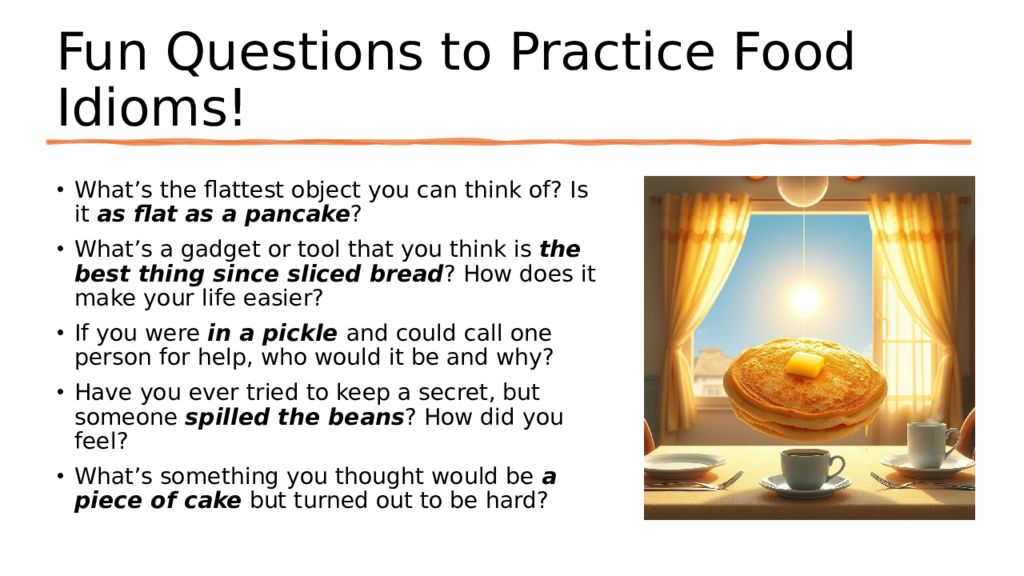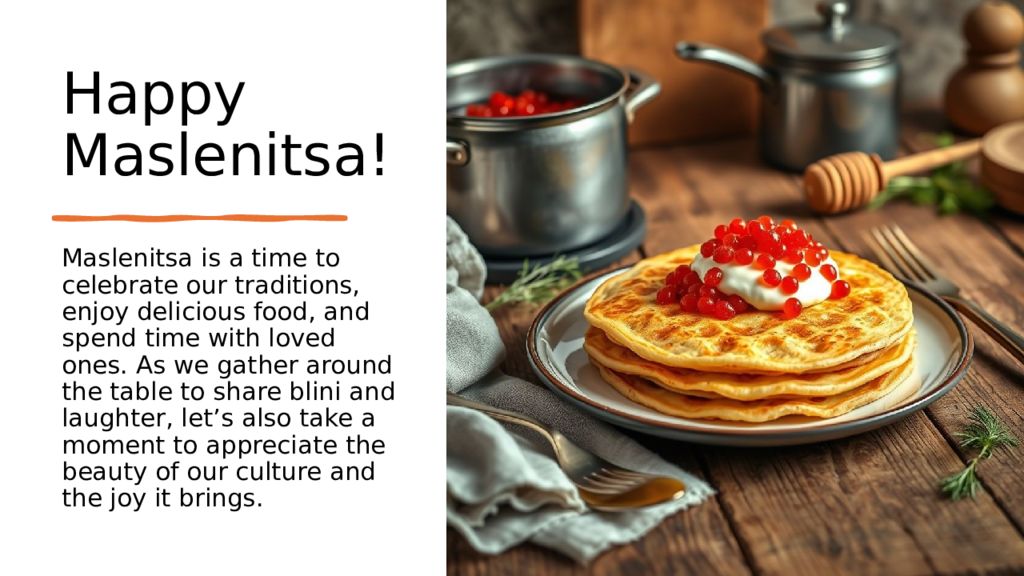Первый слайд презентации: Maslenitsa’s Global Cousins: Festivals of Food and Fun
By Valery Samara
Слайд 2: Discussion
Do you celebrate Maslenitsa? If yes, how do you celebrate it? What’s your favorite way to eat blini? Do you prefer them with sour cream, jam, caviar, or something else? Do you have any special Maslenitsa traditions in your family or community? What’s your favorite part of Maslenitsa? Is it the food, the festivities, or spending time with loved ones? Have you ever tried explaining Maslenitsa to someone from another culture? How did you describe it?
Слайд 3: Celebrations
As you may know, Maslenitsa is a beloved Russian holiday that marks the end of winter and the beginning of Lent. It’s a time for eating blini, enjoying outdoor activities, and celebrating with family and friends. But did you know that many other countries have similar holidays? These celebrations often involve eating rich foods, having fun, and preparing for the Lenten season. Let’s explore some of these fascinating holidays from around the world!
Слайд 4: Shrove Tuesday (Pancake Day) – United Kingdom, Canada, Australia
Shrove Tuesday, also known as Pancake Day, is celebrated in many English-speaking countries. Like Maslenitsa, it’s the last day before Lent, a time when people traditionally give up rich foods. On this day, families make and eat pancakes to use up ingredients like eggs, milk, and sugar. In some towns, there are even pancake races where people run while flipping pancakes in frying pans! Vocabulary to learn: Pancake – блин Lent – Великий пост Race – гонка
Слайд 6: Carnival – Brazil, Italy, and Many Other Countries
Carnival is a huge festival celebrated in many countries, especially in Brazil and Italy. It’s a time for parades, dancing, and wearing colorful costumes. In Brazil, the streets of Rio de Janeiro come alive with samba music and giant floats. Like Maslenitsa, Carnival is a time to enjoy life before the quiet period of Lent. The festival ends on Fat Tuesday (Mardi Gras), which is similar to the last day of Maslenitsa. Vocabulary to learn: Parade – парад Costume – костюм Float – платформа для парада
Слайд 8: Fastelavn – Denmark and Norway
In Denmark and Norway, people celebrate Fastelavn, a holiday that mixes traditions from Carnival and Halloween. Children dress up in costumes and go door-to-door singing for treats. A popular game involves hitting a barrel filled with candy, similar to a piñata. Special buns called fastelavnsboller are also eaten, which are a bit like blini but sweeter. Vocabulary to learn: Treat – угощение Barrel – бочка Bun – булочка
Слайд 10: Pączki Day – Poland
In Poland, the last Thursday before Lent is called Tłusty Czwartek (Fat Thursday). On this day, people eat pączki, which are delicious filled doughnuts. These sweet treats are similar to blini because they are made with rich ingredients like eggs, butter, and sugar. Polish communities in the United States also celebrate this day with joy and lots of pączki ! Vocabulary to learn: Doughnut – пончик Sweet – сладкий Community – сообщество
Слайд 12: Laskiainen – Finland
In Finland, people celebrate Laskiainen, a festival that combines winter fun with preparing for Lent. Families go sledding, eat pea soup, and enjoy special pastries called laskiaispulla. This holiday is a great way to enjoy the last days of winter, just like Maslenitsa. Vocabulary to learn: Sledding – катание на санках Pea soup – гороховый суп Pastry – выпечка
Слайд 14: Mardi Gras – United States (New Orleans)
In New Orleans, USA, Mardi Gras is a famous celebration with parades, music, and colorful beads. People wear masks and costumes, and the city is filled with excitement. Like Maslenitsa, Mardi Gras is a time to enjoy life before the quiet and reflective period of Lent. Vocabulary to learn: Beads – бусы Mask – маска Excitement – волнение
Слайд 16: Why Are These Holidays Similar?
All these holidays share a common theme: they are a time to enjoy life, eat delicious food, and celebrate with loved ones before the solemn period of Lent. Whether it’s blini in Russia, pancakes in the UK, or pączki in Poland, food plays a big role in bringing people together.
Слайд 17: Discussion
Which holiday sounds the most fun to you? Why? What foods do you eat during Maslenitsa? How are they similar to foods from other holidays? If you could celebrate one of these holidays, which one would you choose?
Слайд 18: Food Idioms to Spice Up Your English
Since Maslenitsa is all about food and celebration, here are some fun food-related idioms you can use in everyday English!
Слайд 19: Flat as a pancake”
“Flat as a pancake” - Very flat or level. Example: “After the storm, the field was as flat as a pancake.”
Слайд 20: The best thing since sliced bread”
“The best thing since sliced bread” - Something that is extremely good or innovative. Example: “My new phone is the best thing since sliced bread!”
Слайд 21: In a pickle”
“In a pickle” - In a difficult situation. Example: “I forgot my homework and now I’m in a pickle.”
Слайд 22: Spill the beans”
“Spill the beans” - To reveal a secret. Example: “Don’t spill the beans about the surprise party!”
Слайд 23: Piece of cake”
“Piece of cake” - Something very easy to do. Example: “The test was a piece of cake for her.”
Слайд 24: Fun Questions to Practice Food Idioms!
What’s the flattest object you can think of? Is it as flat as a pancake ? What’s a gadget or tool that you think is the best thing since sliced bread ? How does it make your life easier? If you were in a pickle and could call one person for help, who would it be and why? Have you ever tried to keep a secret, but someone spilled the beans ? How did you feel? What’s something you thought would be a piece of cake but turned out to be hard?
Последний слайд презентации: Maslenitsa’s Global Cousins: Festivals of Food and Fun: Happy Maslenitsa!
Maslenitsa is a time to celebrate our traditions, enjoy delicious food, and spend time with loved ones. As we gather around the table to share blini and laughter, let’s also take a moment to appreciate the beauty of our culture and the joy it brings.
